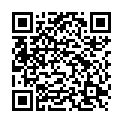|
|
|
| Module code: MAS-20-V3 |
|
|
2C (2 hours per week) |
|
5 |
| Semester: 3 |
| Mandatory course: yes |
Language of instruction:
German |
Assessment:
Term paper
[updated 14.06.2021]
|
MAS-20-V3 (S322-0193) Social Work, Master, ASPO 01.10.2020
, semester 3, mandatory course
MAS-20-V3 (S322-0193) Social Work, Master, SO 01.10.2023
, semester 3, mandatory course
|
30 class hours (= 22.5 clock hours) over a 15-week period.
The total student study time is 150 hours (equivalent to 5 ECTS credits).
There are therefore 127.5 hours available for class preparation and follow-up work and exam preparation.
|
Recommended prerequisites (modules):
MAS-20-I1 Transitions in the Course of Life: Lives, Biographies, and Coping with Life in the Face of Social Change
MAS-20-I2 Life Situations, Social Inequalities and Social Cohesion: Social and Educational Regulation
MAS-20-I3 Migration, Diversity and Interculturality: Socio-Educational and Structural Concepts in Migration Society
MAS-20-II1 Empirical Social Research: Principles and Perspectives with Tutorial
MAS-20-II2 Advanced Qualitative Research, Evaluation Methods with Research Workshop
MAS-20-II3 Advanced Quantitative Research, Evaluation Methods with Research Workshop
MAS-20-III1 Methods of Action: Recent Developments and In-Depth Studies Based on Examples
MAS-20-III2 Case Analysis
MAS-20-III3 Governance of Social Services: Managing and Networking Social-Professional Organizations and Civil Society Processes
MAS-20-III4 Digitization and Aesthetic Education
MAS-20-IV Compulsory Elective Seminar
[updated 30.10.2023]
|
Recommended as prerequisite for:
|
Module coordinator:
Studienleitung |
Lecturer: Studienleitung
[updated 30.10.2023]
|
Learning outcomes:
After successfully completing this module, students will be able to:
- develop a research topic that can be addressed within the given time frame,
- take a well-founded position on selected scientific issues,
- ddevelop solutions together for research methodological problems that arise,
- accompany each other peer-to-peer in their work process and to give each other constructive-critical advice,
- justify their own approach to a scientific topic in a plenary discussion.
[updated 14.06.2021]
|
Module content:
Students will attend an additional colloquium in which they will be able to present, analyze, and clarify questions of research methodology and content related to their master´s thesis in interpretation groups.
[updated 14.06.2021]
|
Teaching methods/Media:
- Presentations in the seminar on selected aspects of the masterís thesis
- Discussions within the framework of the seminar
- Work in interpretation groups
[updated 14.06.2021]
|
Recommended or required reading:
Esselborn-Krumbiegel, Helga (2017): Von der Idee zum Text : eine Anleitung zum wissenschaftlichen Schreiben. 5., aktualisierte Auflage. Paderborn: Ferdinand Schöningh. UTB
[updated 14.06.2021]
|


